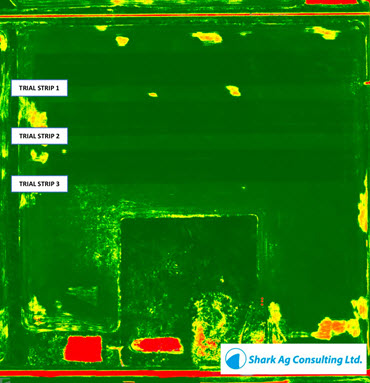Producers in northeast Saskatchewan are learning about, and applying, regenerative agricultural practices on their land
Staff Writer
Farms.com
In northeast Saskatchewan, 55 producers are taking steps towards regenerative agriculture and are sharing what they’ve learned.
Regenerative agriculture seeks to adapt farming practices to regenerate the soil.
Michael Ferguson is a farm advisor with Exceed Grain Marketing in Melfort, Sask. and a farmer in the area. Five years ago, representatives from General Mills approached him. They asked him to find farmers who might be interested in learning more about regenerative ag and sustainability for an oats sustainability project.
Through the program, producers would work together to share information about farming practices. The group would learn about the results in winter meetings and discuss changes they could make the following year.
“2016 was the first crop year and this is our fourth year collecting data. The program continues to evolve. The first year, we had 15 farmers. Now, we're up to 55 participating farmers,” Ferguson told Farms.com. He co-ordinates the program in northeast Saskatchewan.
When the program started, only oat farmers were involved. Now, beef cattle, dairy and organic farmers also participate.
The voluntary program, which falls under the regenerative ag section of General Mills’ Northern Plains Oat Pilot, requires farmers to share their data and have an open mind, said Ferguson.
“When we go over the data, we really try to expand our thinking on how we grow today's crops, what this means for today and what it means for the future,” he said. “A lot of farmers continue to ask questions every year and those questions often lead to the next year's program.”
Through the program, participants look at such factors as yields, fertilizer programs, soil health, and seed trials. Participants consider how practices, such as variable rate fertilizer applications, affect crops. Tyrel Seaman used this practice this year on his canola.
“It'll be interesting to see (the results) this fall and the return on investment – especially with the wet summer we've had,” Seaman told Farms.com.
 Seaman is a grain and oilseed producer in the Choiceland, Sask. area. He farms with his dad Darren and brothers Caleb and Kevin. The family has participated in the program for the last two years and Tyrel was interested to learn how to boost yields with the least amount of inputs.
Seaman is a grain and oilseed producer in the Choiceland, Sask. area. He farms with his dad Darren and brothers Caleb and Kevin. The family has participated in the program for the last two years and Tyrel was interested to learn how to boost yields with the least amount of inputs.
The program has “opened my eyes to a lot of things. It gives a guy an opportunity to see different things that are working in other areas,” said Seaman.
He has seen a marked difference in his crops after making some changes to his fertilizer program in accordance with his soil test results. Seaman is learning a lot from the program and will continue working towards regenerative agriculture on his farm.
The program will continue next year, said Ferguson.
One challenge organizers face is helping farmers realize that they’ve often already enacted some regenerative agricultural practices. For example, reduced tillage and a good crop rotation are both best management practices, Ferguson explained.
A program like this is also beneficial for communicating with consumers, he added.
“As the food industry continues to grow, our general population is becoming more educated on food and where it comes from. We want to make sure that, as farmers, we are doing the best we can, and we want to be able to tell this story. I think agriculture has a huge opportunity to take advantage of, we just need help communicating that story to the general public,” he said.
Photo credit: Shark Ag Consulting Ltd. photos